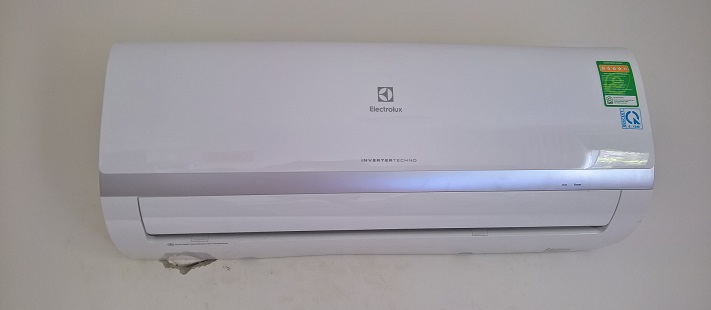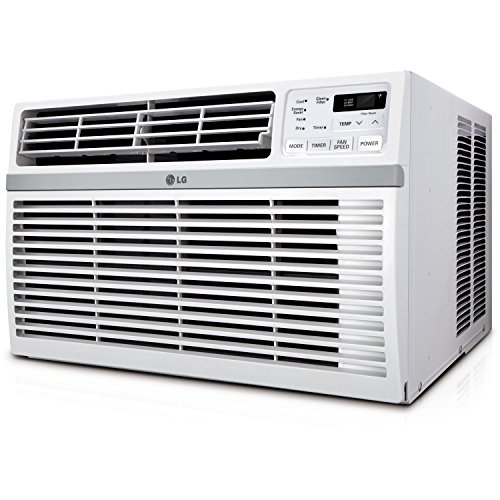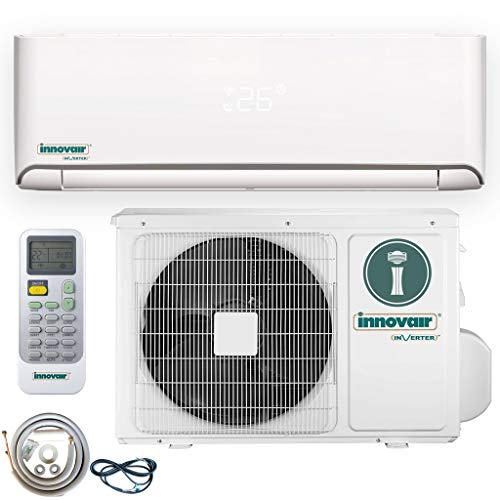Your room size is the most obvious factor to choose the ideal size of an air conditioner. But your location and the insulation of your home are also important things to consider. The right size air conditioner ideal for your need is what you’re going to find out here.

Air conditioners are not something you can just up and buy. If you want to get the best value for your money, you’ll have to understand some things.
Fortunately, we’ve got you covered on that part. By the time you’re done here, no sales rep will be able to ‘confuse’ you to buy the air conditioner they need you to.
Our goal is to help you determine the air conditioner size that is best for you considering your particular situation.
You’ll be working with us on this one. Hopefully, by the time you get to the end, the only question you’d have is which air conditioner brand to buy.
If you’re ready, let’s get started.
Table of Contents
How Air Conditioners Are Rated
There are 2 typical ways to rate air conditioners: energy efficiency and cooling capacity. The energy efficiency part is important as it determines the running cost. Look out for the SEER rating to know the efficiency of a unit. See it more like the miles per gallon rating of a car.
The cooling capacity is what to look at when you want to know the unit size air conditioner that’s tight. It is measured in BTUh.
Cooling capacity
This is the ability of an air conditioner to cool a particular area over a period of 1 hour. Hence its rating BTUh (British Thermal Units per hour). You can also find this same rating referred to as “tonnage”. 1 ton = 12,000 BTUh.
Residential homes only need air conditioning units with a cooling capacity between, 1.5 to 5 tons which is 18k to 60k BTUh. The tonnage of an AC unit is expressed as an increment of 0.5.
It is important to note that there is a distinct difference between British Thermal Units (without the hour) and BTUh.
BTU is the measurement of the amount of heat it will take to raise a pound of water one degree Fahrenheit. While the other (with the “h”) is a measurement of the amount of heat in BTUs an air conditioning unit can move from a space in an hour.
Seasonal Energy Efficiency Ratio (SEER) Rating
This is the amount of cooling provided divided by the amount of electricity produced during a certain period.
The higher the SEER rating the more energy-efficient the unit is. It is important to note that 2 air conditioners might have the same cooling capacity yet different SEER ratings.
The better choice between the two is the one with the higher SEER rating. Preferably, look out for an air conditioner with the Energy Star certification.
Those ones are rated by the Department of Energy to use 8 percent less energy than those without the certification. So, while you’re keeping your home clean, you can save on energy too.
Factors to Consider When Choosing the Ideal Air Conditioner Size
Whether you decided to go for a split, ductless, or a portable AC unit, there are some things you should watch for to select the ideal size of air conditioner.
Choosing the right size will save you some money both in buying something too costly and paying too much on energy bills on heating and cooling.
Room size
Ideally, measuring the length and breadth of a room you need an air conditioner in should be enough to get the room size. However, if your ceiling is higher than standard, you will have to factor that in too as it increases the room’s volume. Hence, you’ll need a slightly higher capacity.
One popular method of determining the capacity needed for a particular space is to multiply the perimeter of the room by 25 BTUh. For instance, if you have a room that is, for instance, 12 feet wide and 15 feet long. The perimeter will be 180 square feet. 25 x 180 = 4500 BTUh.
That is the minimum cooling capacity you should get for a room with the above square footage. This calculation is pretty straightforward, right?
Kindly note that this is an estimate and be careful with the online load calculation apps you see. They might overshoot the estimation.
Don’t be tempted to go for something smaller with the aim of saving some money. Going for something bigger in hopes of keeping your home igloo-ish is also not a good idea.
Here are some of the implications of going overboard or skimping with the capacity:
Too small
The unit will have to work at maximum capacity at all times to keep up. It will also have to stay on for longer which will consume more power, hence, extra running cost. It will also lower the moisture in the air than it should. Finally, the unit will wear faster since it works at capacity at all times.
Too big
The room will get cold too fast which means the unit will have to shut off early when it reaches the preset temperature. The frequent on and off cycling will use more power, cause faster wear and tear, and the room will feel less comfy as the air conditioner will not dehumidify the air sufficiently.
Insulation
This is another important factor. Air conditioners in homes without insulation will have to work harder to maintain the temperature. This is so because the cold air will escape through cracks, the floor, and mostly through the roof.
Having roof insulation makes your home thermally efficient. That way, the comfortable temperature the AC unit creates is easily maintained.
To put things in perspective, a space of 320 square feet will require approximately 7500 BTUh if the roof is insulated. However, a room the same size will need an air conditioning system with about 11,600 to 12,000 BTUs to achieve the same effect.
“If you don’t have roof insulation, consider installing it – it’ll save you money on running cost and you can still get to use a smaller AC units.”. Those are the words of Chris Barnes, an air conditioning expert.
Location
The reason this factor matters is because of the prevailing weather in the area. If the outside temperature is generally hot in your area, you will need more capacity than if the temperature is often lower.
Orientation
This has to do with the direction your house is facing. If the room you need the AC unit for lets in a lot of heat or is directly exposed to the sun, you’ll need a higher capacity than if it is usually under a shade.
To be more precise, Energy Star offered the following recommendations:
- For rooms that are under shade, you can reduce the estimated capacity by 10 percent.
- For rooms that are exposed to the sun and heat, you can increase the capacity by 10 percent.
Apart from the load calculation above, there are other things you should consider to choose the right air conditioner size you need.
- If you need the AC in the kitchen, you should add the estimated capacity by 4000 BTU
- If the room is regularly occupied by 2 people, you should increase the rating by 600 BTU for each occupant.
- Construction features that might contribute to cooling loss or heat gains such as skylights and fireplaces.
- Number and types of appliances that generate heat.
- 🍃 MULTIFUNCTION - You can use it as a normal little fan, or you can by adding water and some ice in the tank as an air cooler.Can also be used as an air circulator and mist humidifier. ◉ This Fan is for Personal Use, no coolant, can’t cool down room, please dont put the fan too far away from you to use.
- 🍃 ENERGY SAVING - This evaporative air cooler and Humidifier is Freon-free air conditioner which could operate at a low energy consumption.If your home alone, using this fan is a choice perfect, cool and energy efficient.
- 🍃 AIR HUMIDIFICATION - Water tank after adding water and ice, can be used continuously for 4-6 hours.Also, can drop your favorite essential oil into water, then the misting air will make you feel pleasant.Unlike other air conditioners, this fan could maintain the indoor humidity which will not make you skin feel dryly.
- 🍃 EASY & PORTABLE DESIGN - This air conditioner fan size is 5.7 x 3.9 x 9.5 (L*W*H).Portable and lightweight design is not taking up too much space, very easy and convenient to carry on the go.You can use it in office, bedroom, live room, dormitory, etc.Have 3 buttons, power/speed/refrigeration, power button is to switch on/off; speed button is to change the level of wind; refrigeration button is a turn on/off the mode of cooling.
- 🍃 PRODUCTS & SERVICE - Package includes 1 x Air Conditioner Fan, 1 x DC Adapter, 1 x User Manual in English. 12 MONTHS WARRANTY: If you have any questions about our products, please contact us directly.We provide 100% refund guarantee and if you are not satisfactory with our portable air coolers, we will provide fully refund or free change.This is totally free risk purchase!
Conclusion
Air conditioning systems are a long-term investment. It is essential to take the time to do some research. If you use the approach to determine the ideal cooling capacity and factor in efficiency, you’re bound to find the sweet spot even with a portable AC. All that’s left is to choose a unit from a brand you trust and enjoy the benefits of a solid HVAC system.
Well done for coming this far with us. We know it might be a bit overwhelming choosing from the available options even after you’ve done the math involved. The best way to go about it is to start from fulfilling your needs. Let every consideration tie back to that. After all, satisfying your needs is the reason for all this in the first place. Thank you for your time. If you find this valuable, kindly share it with your loved ones. They’ll thank you for it.


